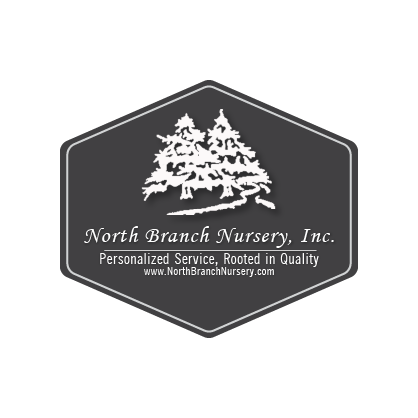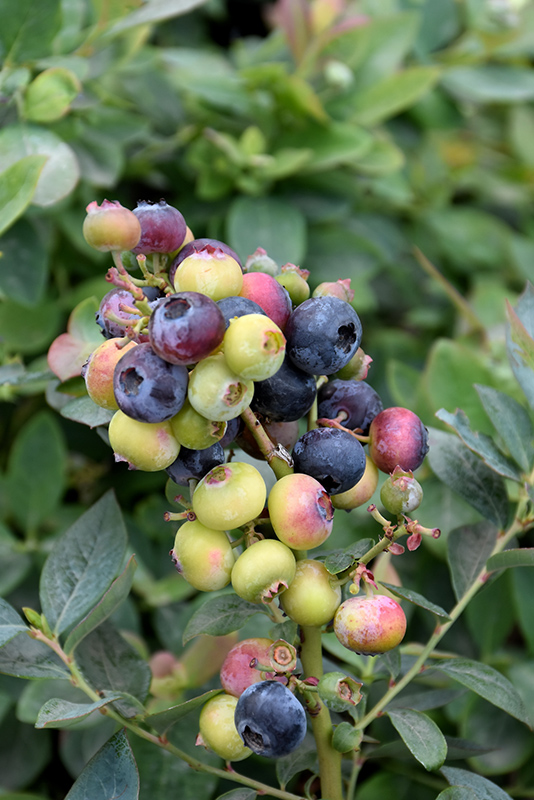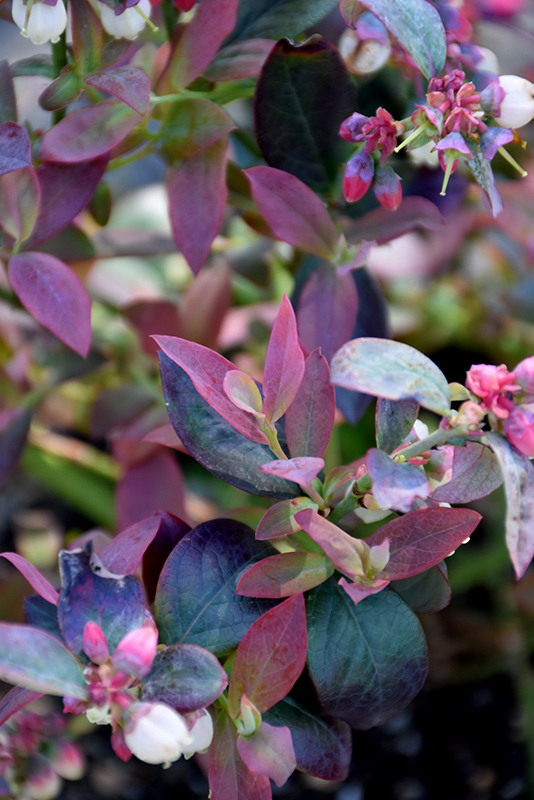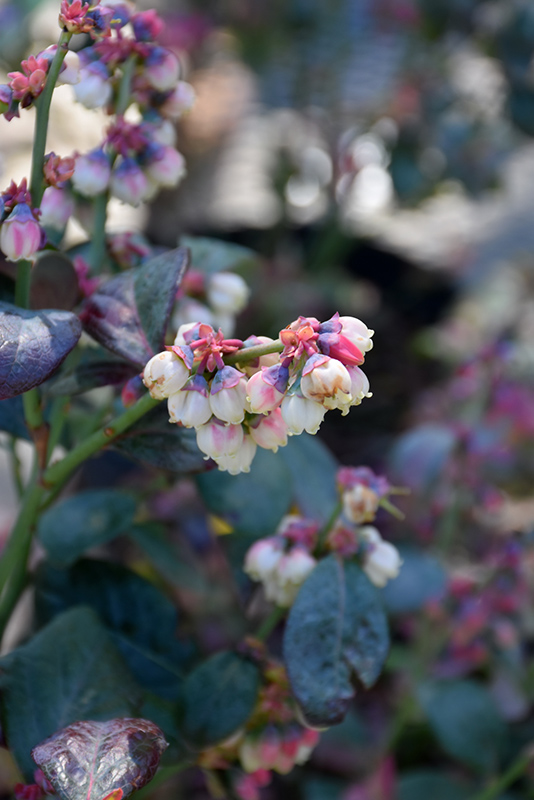Looking for a particular Plant? Try our Plant Finder Tool.
Height: 4 feet
Spread: 4 feet
Sunlight:
![]()
![]()
Hardiness Zone: 4b
Brand: Bushel and Berry
Description:
A stunning variety with beautiful spring foliage; hues of pink and blue-green, turning turquoise in fall; produces large, sweet blue fruit in mid summer; blueberries require highly acidic soils, excellent drainage and a good mulch, plant with peat moss
Edible Qualities
Pink Icing® Blueberry is a small shrub that is commonly grown for its edible qualities, although it does have ornamental merits as well. It produces large clusters of blue oval berries which are usually ready for picking in mid summer. The berries have a sweet taste and a juicy texture.
The berries are most often used in the following ways:
- Cooking
- Baking
- Preserves
Features & Attributes
Pink Icing® Blueberry features dainty clusters of white bell-shaped flowers with shell pink overtones hanging below the branches in mid spring, which emerge from distinctive pink flower buds. It has bluish-green deciduous foliage which emerges pink in spring. The glossy oval leaves turn an outstanding aqua bluish-green in the fall. It features an abundance of magnificent blue berries in mid summer.
This is a multi-stemmed deciduous shrub with an upright spreading habit of growth. Its relatively fine texture sets it apart from other landscape plants with less refined foliage. This is a relatively low maintenance plant, and usually looks its best without pruning, although it will tolerate pruning. It is a good choice for attracting birds to your yard. It has no significant negative characteristics.
Aside from its primary use as an edible, Pink Icing® Blueberry is sutiable for the following landscape applications;
- Accent
- General Garden Use
- Orchard/Edible Landscaping
Planting & Growing
Pink Icing® Blueberry will grow to be about 4 feet tall at maturity, with a spread of 4 feet. It has a low canopy. It grows at a fast rate, and under ideal conditions can be expected to live for approximately 20 years. While it is considered to be somewhat self-pollinating, it tends to set heavier quantities of fruit with a different variety of the same species growing nearby.
This shrub is quite ornamental as well as edible, and is as much at home in a landscape or flower garden as it is in a designated edibles garden. It does best in full sun to partial shade. It does best in average to evenly moist conditions, but will not tolerate standing water. It is very fussy about its soil conditions and must have sandy, acidic soils to ensure success, and is subject to chlorosis (yellowing) of the foliage in alkaline soils. It is quite intolerant of urban pollution, therefore inner city or urban streetside plantings are best avoided, and will benefit from being planted in a relatively sheltered location. Consider applying a thick mulch around the root zone in winter to protect it in exposed locations or colder microclimates. This particular variety is an interspecific hybrid.





